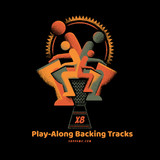Drumming and Leadership Skills
When listening to music, a variety of sounds and tones come together to create a multi-sensory experience that has a wide range of health and wellness benefits in addition to an emotional connection and the simple enjoyment of a song. Music therapists and educators have long since harnessed the power of music and rhythm to stress and anxiety, as well as draw people together much in the way the different parts of music combine within a song. While no one instrument is more important than another, it could be said that the major motivating force in music is its rhythm, helping to focus the other instruments and players, and essentially leading the song from beginning to end.
Because of the presence of rhythm within music, drumming can be a great way to encourage, develop and refine leadership skills. A drummer playing a gig has the challenge of keeping the entire band together, slowing and speeding up the rhythm and even ending the song with a loud hit on a cymbal. Within hand drumming circles, the drummers may all have the opportunity to provide the lead rhythm, taking turns on a djembe or cajon drum, filling the air with a unique style and sound that helps draw out the natural leader within the drummer. “Call and Response” drumming is an exercise in leadership, with the “leader” hitting a rhythm that the other drummers must replicate or “answer,” allowing the leader the ability to mold the overall drumming experience to his or her liking.
Taking the leadership role as a drummer is similar to leadership in life. The ability of a drummer to dictate the various nuances of rhythm easily translates into the world of business and management, helping to establish a personal basis that requires discipline, responsibility and creativity. Taking chances on a drum solo, for example, can be compared to a new career focus or new, creative level of expression in life. Directing others within a circle, or working cooperatively to guide others through a complex rhythm can each become an inherent talent of a leader in life outside the drum circle. The list goes on and on, connecting drummers with important life skills, including leadership, throughout the various genres of drums, music and rhythm.
Drumming may not be the first thing that pops into mind when considering ways to develop leadership skills, but the pursuit of rhythm can be a unique way to bring out the skills needed to move ahead in career or other pursuits. For those who need a creative way to begin building leadership skills, the use of a Djembe or other drum can be the fastest way to find success throughout all aspects of life.
Recent Posts
-
X8 Drums Play-Along Backing Tracks
The new X8 Play-Along Series is being produced for our musician friends wanting a fresh way to work …9th Feb 2025 -
What is the Best Size Djembe for Beginners?
If you're new to the world of percussion and interested in learning the djembe, you're in for a t …16th Jul 2024 -
The Benefits of Becoming a Drumming Teacher: Transforming Passion into Profession
Why become a drumming teacher? Becoming a drumming teacher is an excellent way to share your pas …22nd May 2024



